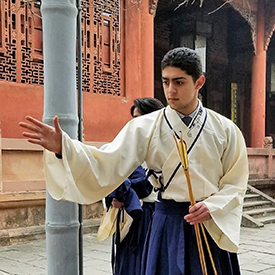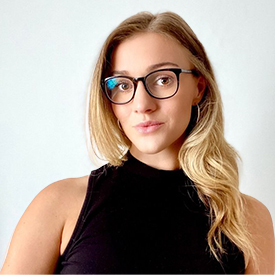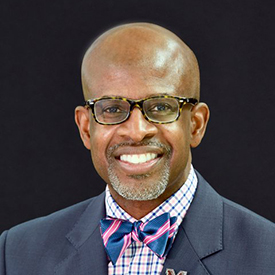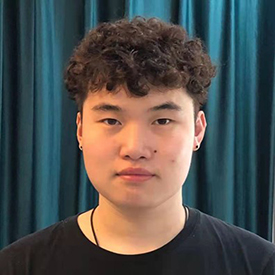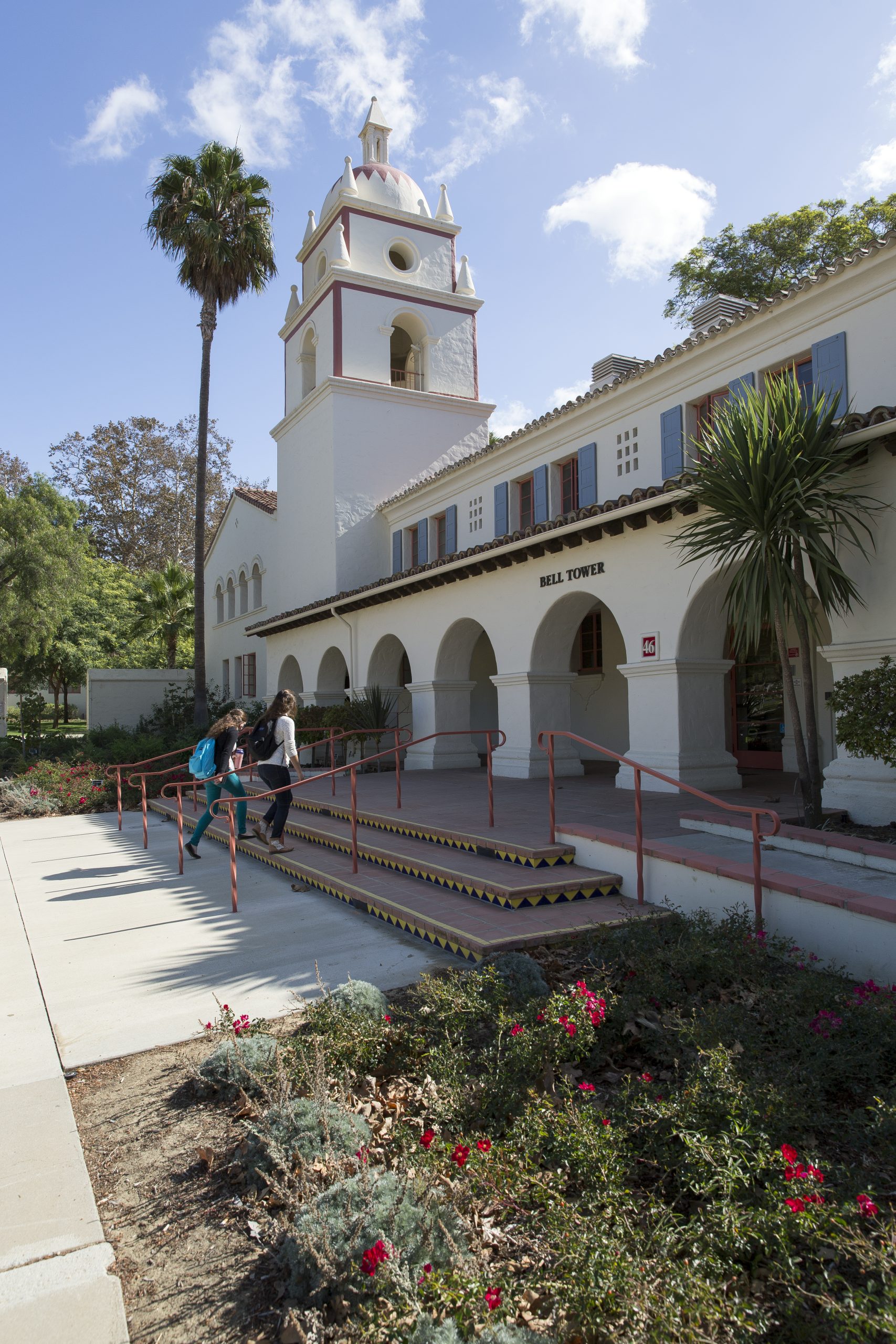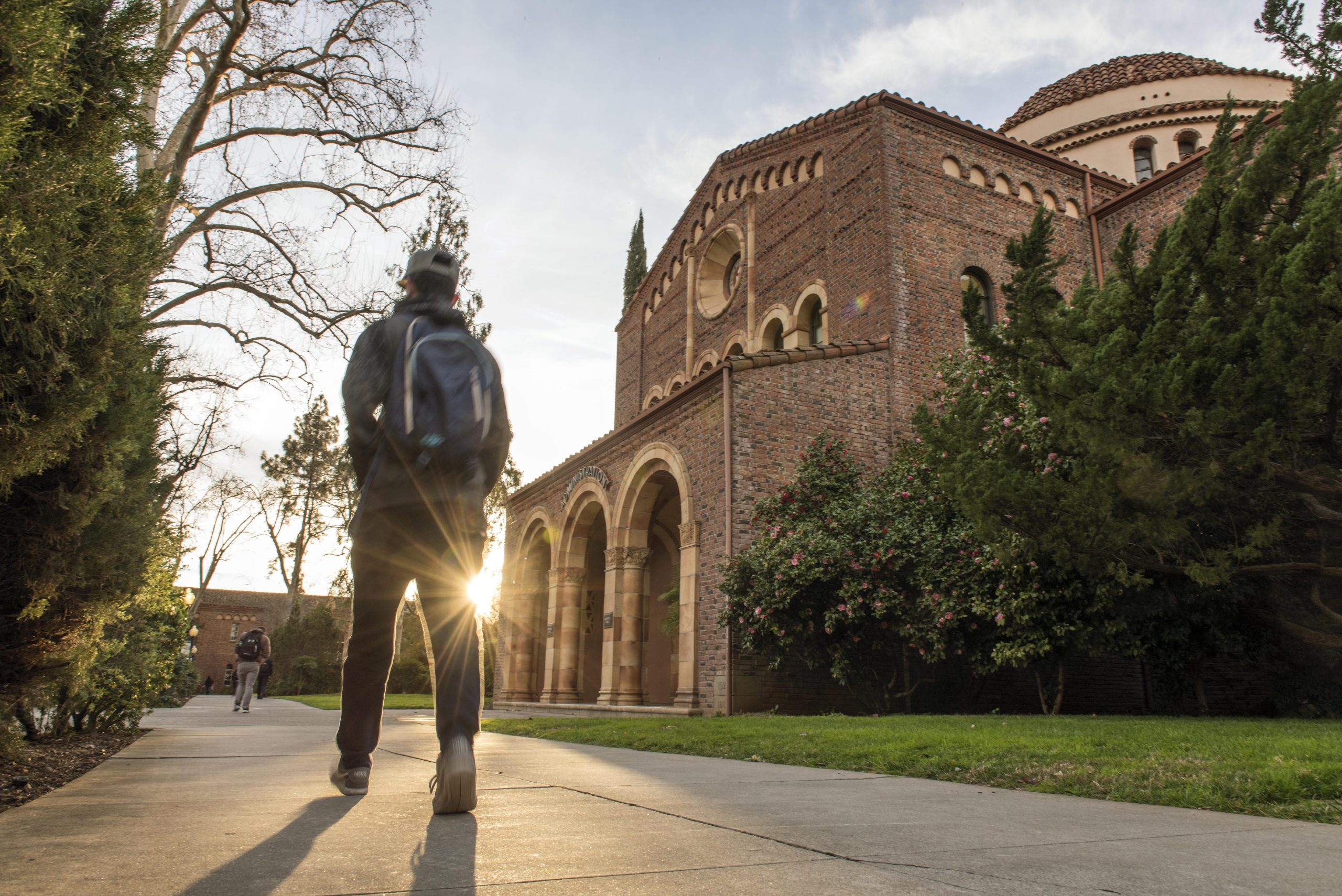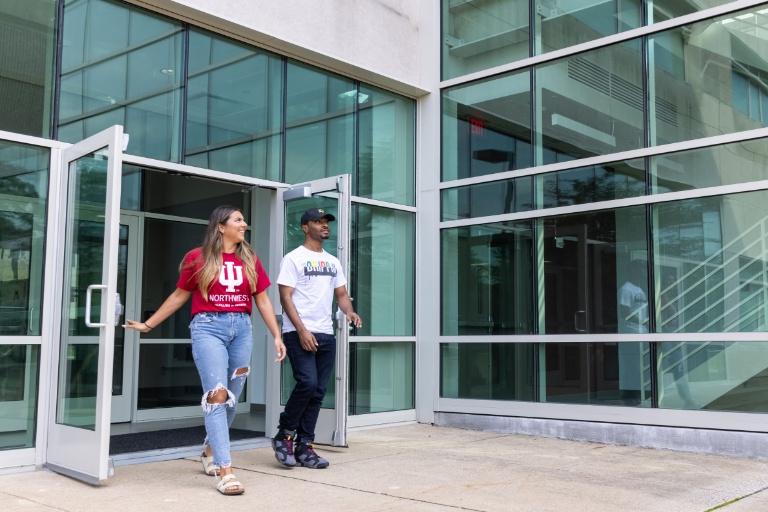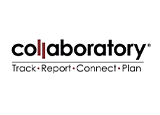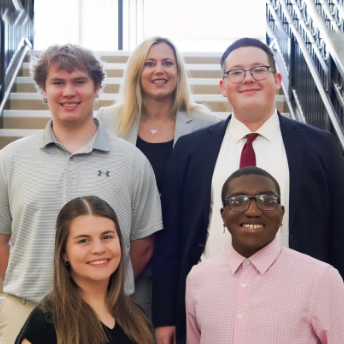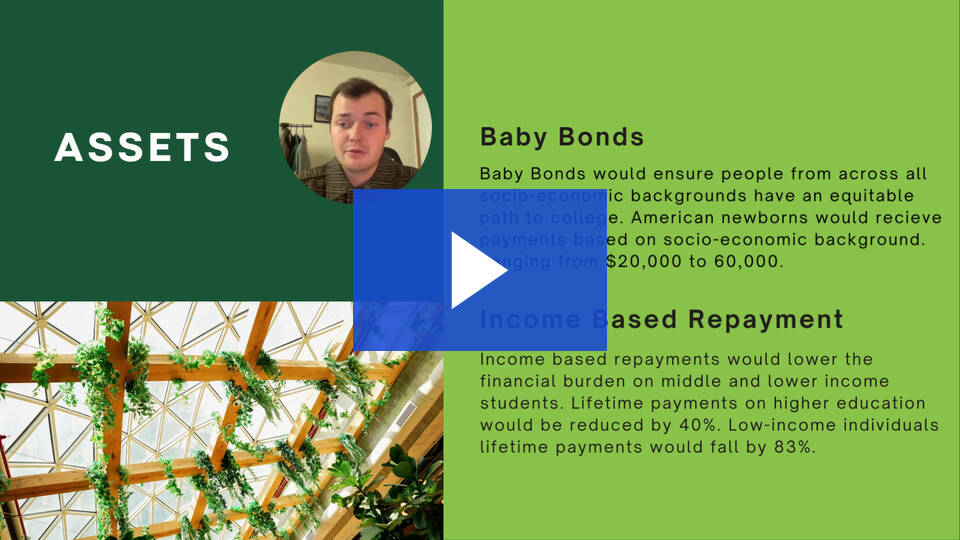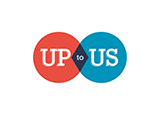China-U.S. Rising Star Student Study Tour
The China-U.S. Rising Star Student Study Tour is a study abroad opportunity for students interested in Chinese language and culture, strengthening their global competencies, and improving their professional capacity, by exploring options for potential international academic and career pathways.
Learn more.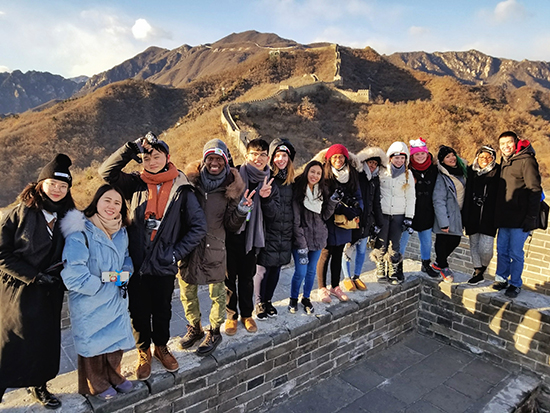
Study abroad in a safe, collaborative and immersive environment.
The China-U.S. Rising Star Student Study Tour program is created for students who are particularly interested in a guided, short-term study abroad option. The program is specifically designed to support students in their aim to strengthen cross-cultural communication skills, improve various aspects of their professional capacity, while exploring and expanding options for potential academic and career pathways in China. The program activities are designed to facilitate an immersive cultural experience, foster experiential learning, and encourage dialogue and cooperative learning between Chinese and American students.
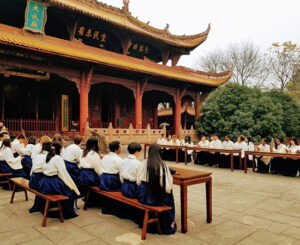
Who Should Apply?
- U.S. citizen or legal permanent resident, enrolled in a program of study at an AASCU institution
- Students who have completed at least one semester of post-secondary education.
- Students pursuing any major, with the ability to demonstrate a strong interest in Chinese language and culture.
- Students in good academic standing.
- Students willing to promote their education exchange experience between China and the U.S.
How will you benefit?
- Immersive Cultural Experiences– To help students understand the social and economic conditions of modern China, the study tour includes activities such as lectures, workshops, collaborative learning activities, and visits to prime industry and cultural locations to provide them with a multi-dimensional experience in China.
- Experiential Learning – Project based learning and training in different labs are also important components of the study tour. Students from the US and China with similar academic backgrounds, develop and improve their professional knowledge and skills together through lessons taught by participating faculty members, industry visits and cooperative learning.
- Student Dialogue – Aiming to build long-term friendships and enhance mutual understanding between the participants, workshops, seminars and team-building activities are included in the study tour to facilitate interaction and communication among students.
Network and engage with Chinese higher education leaders, faculty and peers over two weeks across different cities in China.
The study tour is a flagship student exchange program under the framework of the China-U.S. High-level Consultation on People-to-People Exchange (CPE) in the sector of vocational education. AASCU’s International Education Office, as co-sponsor of this initiative, along with the China Education Association for International Exchange (CEAIE) selects students from its member universities to experience two weeks of intensive training in a thematic area, and study across several Chinese cities and host Chinese vocational institutions. Past programs have engaged students in the specific areas of robotics, business and entrepreneurship, aviation, architecture, and e-commerce.
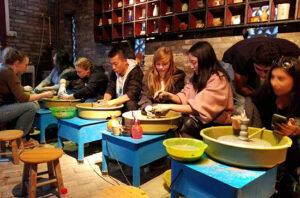
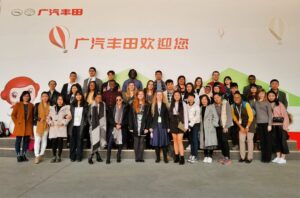
impact
3
Number of years AASCU has offered this opportunity to students at its member institutions.
58
Number of students participating in a study abroad experience for the first time,
26
AASCU institutions engaged.
Program Deatails
- Program Duration: 2 weeks
- Program Dates: Program is usually scheduled during the first two weeks of January
- Location: Locations in China varies with each program cycle. Participants can however expect to visit major cultural sites, several relevant industry sites, and program host institutions.
- Participants: Selected participants are responsible for their international travel costs, including round-trip airfare, visa application fee and travel insurance.
- Program: Meals, accommodations and domestic transportation in China will be covered by the program.
- Application deadline is usually at the beginning of November.
- AASCU makes final selections and notify final candidates by mid-November
- Final candidates upon being notified will send a letter of their acceptance to AASCU by the end of November.
- AASCU will provide relevant reading materials and travel information in early December
- Rising Stars must submit all required documentation, including doctor’s recommendation, proof of travel insurance and Chinese visa by mid-December.
- Student participants depart for China in early January.
Testimonials
Want to know more about the China-US Rising Star Student Study Tour? Let us know.
"*" indicates required fields
Campus Consultations
AASCU offers member universities the opportunity to collaborate with our International Education team, to assess their level of internationalization, through thorough reviews of programs, policies and assist in envisioning next developmental steps.
Learn more.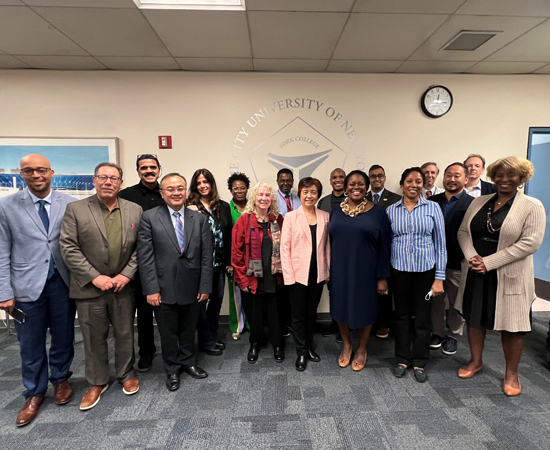
AASCU’s International Education team connects with campus colleagues to address the strategic vision for institutional internationalization.
Campus consultations provide quality professional evaluation of member campuses’ comprehensive internationalization processes. Each visit consists of a multi-day assessment of the member institution’s current internationalization strategy and specific programs. During the visit, the IE team meets with campus senior leadership and stakeholders to observe, review and recommend strategies to advance the institution’s global programming.

Who should participate?
- Leadership, faculty, and staff looking for guidance on where to focus their internationalization efforts next.
How will you benefit?
- Comprehensive Evaluation: AASCU’s International Education team conducts thorough reviews of member universities’ programs and policies, providing a comprehensive assessment of their level of internationalization. This evaluation helps institutions gain valuable insights into their current internationalization efforts.
- Collaboration: AASCU collaborates with member universities to envision the next developmental steps in their internationalization journey. By leveraging the expertise of the International Education team, institutions can strategically plan and set goals for advancing their global programming.
- Stakeholder Engagement: During the assessment visit, the team engages with campus senior leadership and stakeholders. This interaction allows for a deeper understanding of the institution’s global programming and provides an opportunity to observe, review, and recommend strategies for advancement. Engaging stakeholders ensures a holistic approach to internationalization efforts.
- Enhanced Global Programming: By partnering with AASCU’s International Education team, member universities can enhance their global programming. The team’s expertise and recommendations assist institutions in developing effective strategies, policies, and programs to create a more globally engaged campus community.
- Networking and Resource Opportunities: Through the collaboration with AASCU, member universities gain access to a network of like-minded institutions committed to internationalization. This network can facilitate knowledge sharing, collaboration, and the exchange of best practices, further strengthening each institution’s global engagement.
Testimonials
Interested in a campus consultation? Let us know.
"*" indicates required fields
Sino-US CHEPD 1+2+1 Program
The Sino-US CHEPD program is designed for undergraduate and graduate Chinese students to study at participating AASCU member institutions. The program is jointly administered by AASCU and the China Center for International Educational Exchanges (CCIEE). Students who complete the program receive two separate degrees from a US institution and their Chinese home institution.
Participate.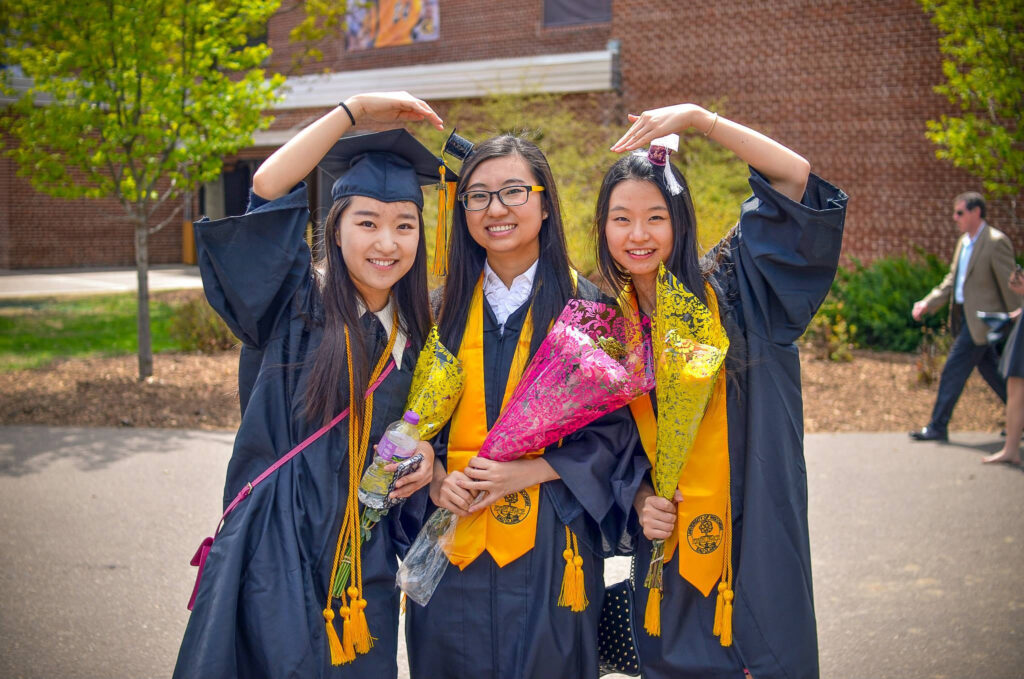
Sino-US 1+2+1 CHEPD program is the largest student mobility program between the US and China.
Under the platform of Sino-US Cooperation in Higher Education and Professional Development (CHEPD), with joint administration of the China Education Association for International Exchange (CEAIE) and the China Center for International Educational Exchange (CCIEE) in China, AASCU is proud to offer the Sino-American CHEPD 1+2+1 Program.
Since 2001, this program has provided the opportunity for Chinese students to spend up to two years at an AASCU institution to pursue undergraduate and graduate studies. Participants then receive two separate degrees from their Chinese home institution and their U.S. host institution.
The CHEPD 1+2+1 Program has become the largest and most successful program of its kind. Recognized by the Chinese Ministry of Education as a Program of Excellence, it is one of most important platforms for cooperation between Chinese and American universities.
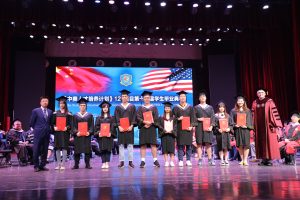
Criteria to join.
- AASCU member
- Eligibility to grant J visas
- Institutions MUST offer ESL or bridge programs
- Identified designated campus coordinator
- Ability to host Chinese visiting scholars
How will you benefit?
- Opportunity to partner with an extensive range of Chinese institutions
- Support and network for developing robust academic exchange programs
- Teaching and research opportunities for faculty members
- Scholarship resources for US students
- Additional program development opportunities
impact
20+ years
Our program has built sustainable partnerships for over two decades.
182
Number of participating institutions – 38 AASCU members, 144 from Chinese partners.
6500
Number of students that have participated.
$400 M USD
U.S. campuses have received approximately $400 million in tuition, fees, room and board.
Program Structures and Types
Chinese students who pass the national entrance examination will complete their initial year of study in China. They will study in the US during their 2nd and 3rd years, then return to their Chinese home institution for the final year. After completing all the degree requirements, the student will receive two degrees from both US and Chinese institutions.
First-year graduate students are selected from Chinese universities to spend two or three academic semesters studying in an AASCU member university. They return to their Chinese universities for the final academic year. Qualified students will be granted diplomas and masters’ degrees from both Chinese and U.S. universities.
Students follow the regular 1+2+1 Program, i.e., the International Cohort Program students complete their freshmen year in Chinese university. In the second and third years of the program, students come to the United States to complete their sophomore and junior years at the US partner university. Students return to China to finish their senior year at Chinese university and graduate with two separate bachelor’s degrees from Chinese and American universities. All students participating in this program have already had their four-year curriculum mapped out, through articulation agreements between the two partner institutions.
Learn more about ICP.Students who are not interested in pursuing a degree in the United States, but are seeking study abroad experiences, can apply for the Youth Exchange Student program for one academic semester or one year through US partner institutions. YES students are allowed to transition to 1+2+1 Program degree-seeking status once they are on the US campuses.
CHEPD 1+2+1 Program Participating Institutions
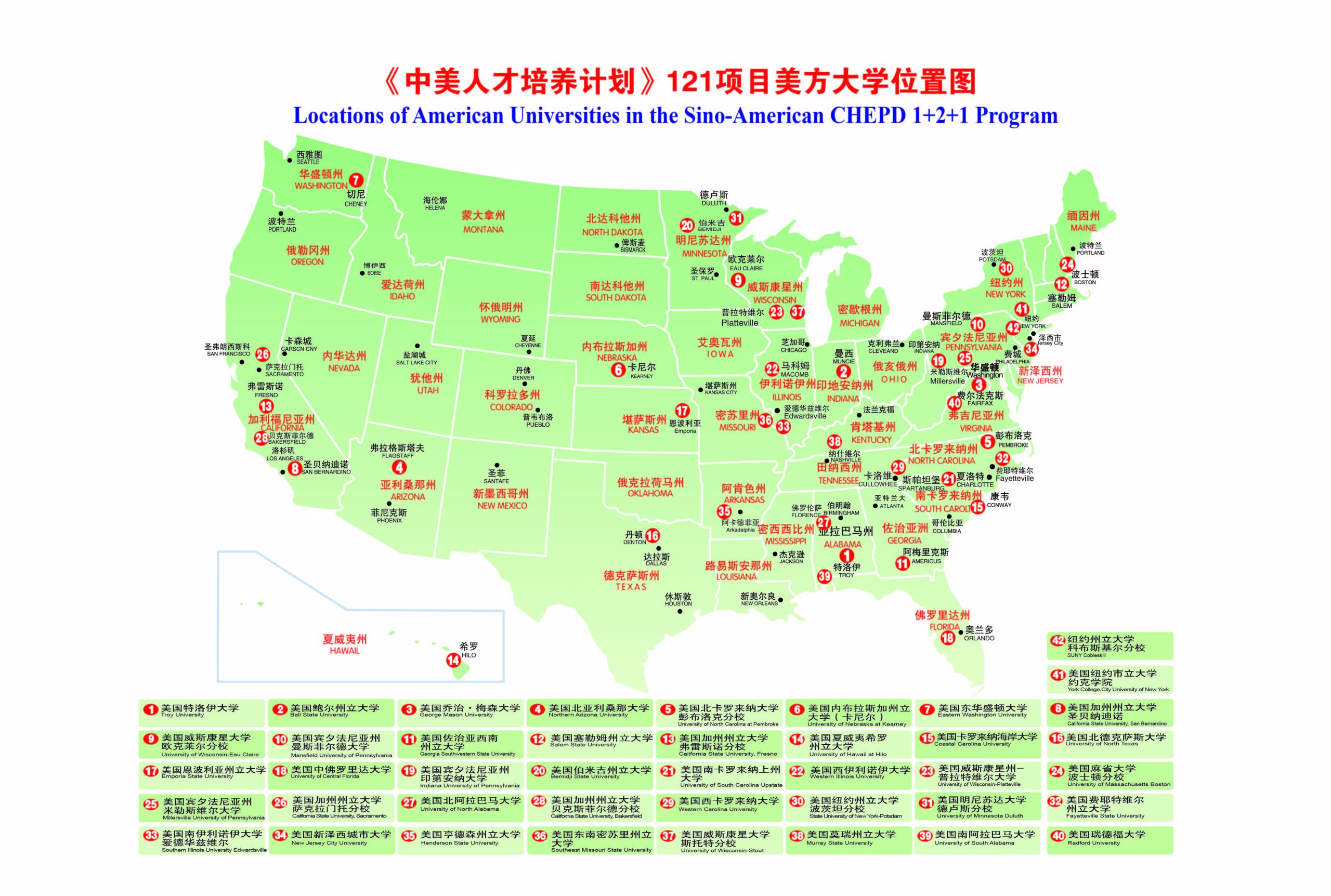
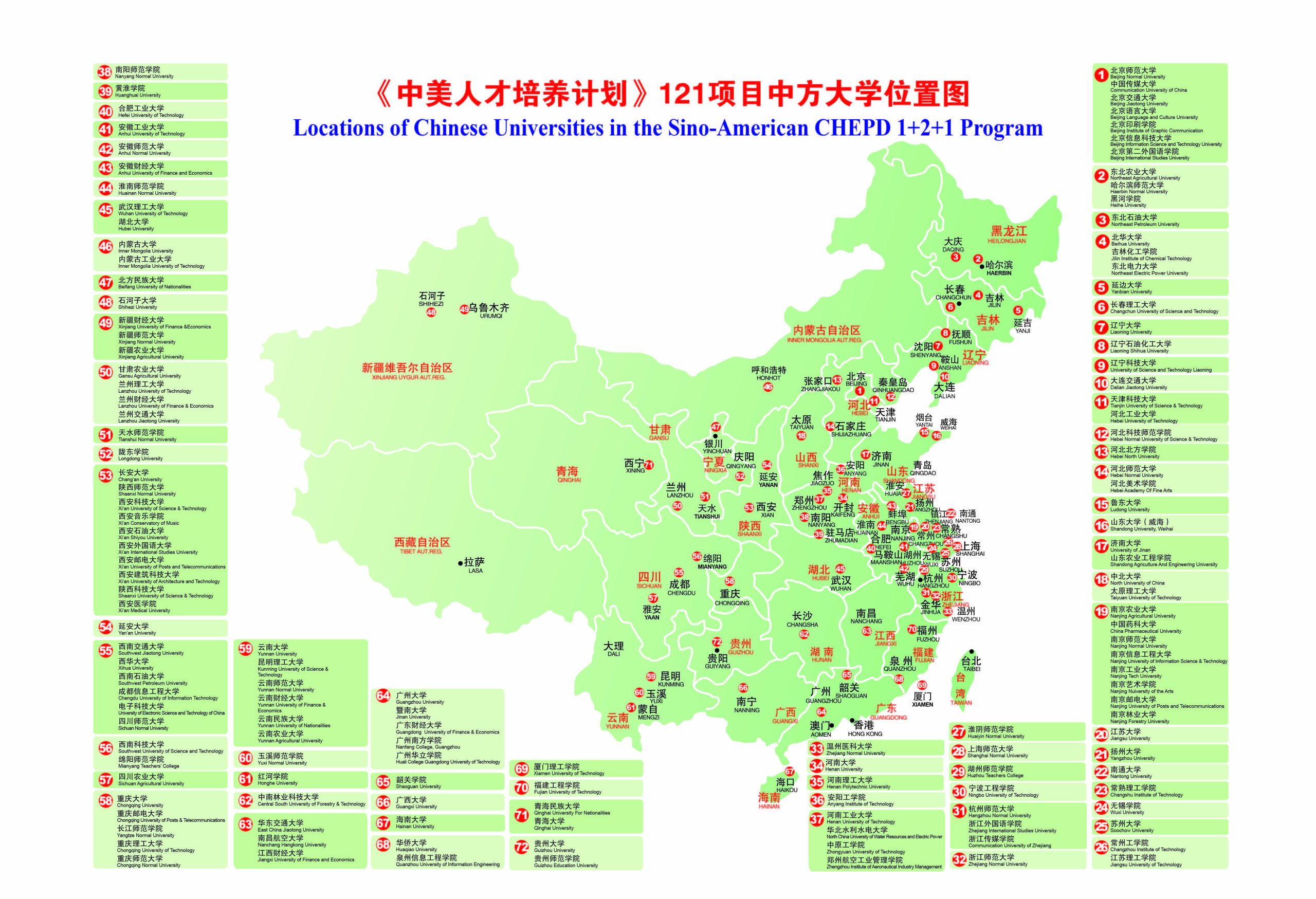
Testimonials
Our Partners
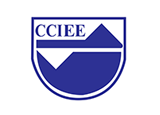
The China Center for International Education Exchange (CCIEE) is an independent legal entity established by China Educational Association for International Exchange (CEAIE), affiliated with the Ministry of education of China. Over the past thirty years, CCIEE has extensively conducted short- and long-term programs such as student exchange, study in China, teaching training, self-funded overseas-study. Aiming at promoting education exchange and cooperation between China and other countries, CCIEE insists on bringing in high-quality foreign educational resources, and facilitating China’s education to be internationalized and worldwide recognized.
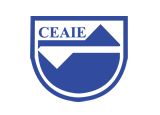
Founded in 1981, the China Education Association for International Exchange (CEAIE) is China’s nationwide not-for-profit organization that conducts programs and activities that facilitate international educational exchanges and cooperation. CEAIE is fully committed to promoting the advancement of education, culture, science and technology; and strengthening understanding and friendship among the peoples of all countries and regions of the world.
Interested in participating in the
Sino-American CHEPD 1+2+1 program?
"*" indicates required fields
Questions about this program? Let us know.
"*" indicates required fields
American Short-Term Study in China Initiative
ASSCI provides funding and support through AASCU and the Embassy of China to facilitate partnership building through institutional based faculty-led study abroad programs in China.
Apply by Oct. 31.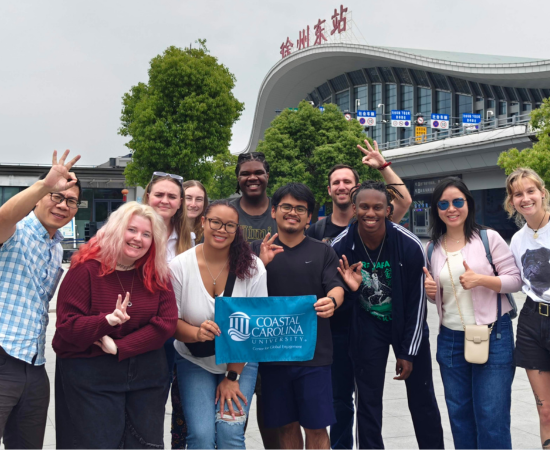
 ASSCI supports faculty-led study abroad programs.
ASSCI supports faculty-led study abroad programs.
The American Short-Term Study in China Initiative (ASSCI) is a scholarship program offered by the Embassy of the People’s Republic of China in the United States of America and administered by the American Association of State Colleges and Universities. The scholarship will support students enrolled in institutional-based, faculty-led study abroad programs in China. Faculty members with existing China study abroad programs, faculty interested to adding a study abroad component to a pre-existing course, or faculty interested in developing a program for studying abroad in China, are encouraged to submit a funding proposal.
Who should participate?
- Faculty from accredited U.S. institutions
- Faculty from all disciplines interested in adding a study abroad component to their course /curriculum
- Faculty members with existing study abroad programs with Chinese institutions
- Faculty members interested in creating study abroad programs, but require assistance to identify matching partners
How will you benefit?
- Scholarship support for students’ expenses in China
- Support for identifying Chinese university partners and developing robust academic exchange programs
- Opportunity to partner with an extensive range of Chinese institutions
- Opportunities for U.S. faculty to teach abroad
Applying to ASSCI.
Proposals should be submitted by faculty on U.S. campuses, with support from the provost, along with accompanying approval and signatures from the individual responsible for study abroad programs on each campus.
The ASSCI program focuses on joint efforts between U.S. and Chinese partner institutions. Chinese partners must be Double First-Class universities. AASCU can assist with identifying Chinese institutional partners. Applicants requiring assistance with identifying a partner to apply for the scholarship should indicate this when completing the application form.
Proposals will be accepted through October 31. Submitted proposals will be reviewed and rated by the selection committee organized by AASCU and recommended to the Chinese Embassy for approval. Applicants will be notified by December 15.
- Program fee, AASCU member: Fee waived
- Program fee, non-AASCU member: $1000
Approved program will be funded to cover the following items at a rate* of RMB 2500 per student per month:
- Tuition at the Chinese institution
- On-campus accommodation
- Health insurance during program stay in China
*If the program is designed to be less than one month in duration, the fund will be reduced in proportion to the number of program days.
The funded program does NOT cover:
- Faculty-related expenses
- Tuition at the US institution
- Airfare and other travel expenses to China
- China visa application fees
Applicant must be a:
- Faculty in any discipline who teaches a course that requires students to study abroad in China
- Faculty who are interested in developing a course for students to study abroad in China
The proposal must meet the following requirements:
- Co-designed and co-taught with a Chinese partner institution, with at least 50 percent of the content delivered by the Chinese partner on-site in China
- Offers academic credits for all the students
- Has a duration of no less than two weeks and no longer than three months in China
- Starts no earlier than May 15 and no later than September 1, 2026
- Minimum enrollment of 6 students
- Maximum enrollment of 30 students
- Each partnership needs to submit a proposal which meets the requirement above, i.e. if you are working with more than one Chinese partner institution, a separate proposal for each partnership needs to be submitted respectively.
The selection committee will use several criteria when reviewing applications:
- The proposed program will be measured for clarity of learning goals and the extent to which the program’s activities contribute to those goals.
- The proposed program includes faculty leadership at the US institution.
- The proposed program uses the resources of the Chinese partner, such as academic strengths, location in China, and connections outside the institution.
- The proposed program involves students from the Chinese partner institution.
Complete and submit the Proposal Form, Nomination Form, and Institutional Approval Form before October 31, 2025.
- Submitted proposals will be reviewed by a Selection Committee comprising Chinese embassy staff, AASCU staff, and non-applicant faculty who have led past faculty-led programs in China. The Chinese Embassy will finalize the approval and send notice to AASCU.
- Applicants will be notified by December 15, 2025.
- Once an American institution has received notification of its successful application, the applicant will need to work together with the Chinese partner on student visa and logistics required by both institutions.
- Faculty-led group study abroad in China will take place from May to September 2026.
Instructions for students who are admitted in a study abroad in China program on your campus and the teaching faculty will work with you to fill out the ASSCI scholarship application.
ASSCI application instructions. Student Visa Application and Process Instructions. China Visa Application Information.Visit the China Scholarship Council website for more information about the scholorship.
China Scholarship Council.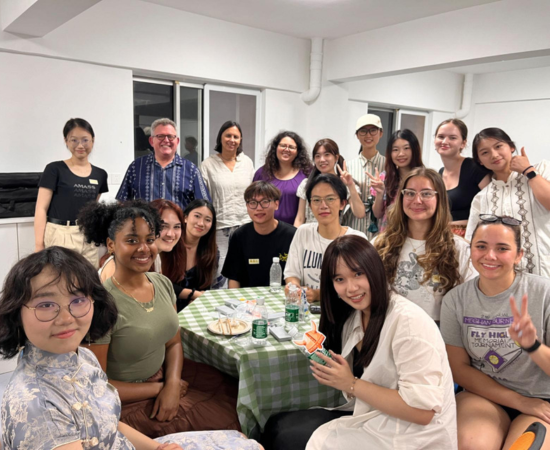
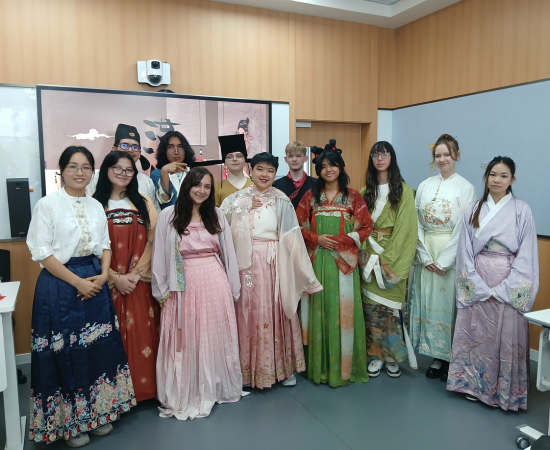
Proposals and nominations are due on October 31, 2025.
If you have questions, please contact Sufei Li.
Frequently asked questions
The approved program in China will be funded for tuition cost, room and board (at a rate of 2500RMB per student) and health insurance (400RMB-800RMB). The total payment will depend on the length of the program.
You will need to work with both your home institution and your Chinese institutional partner to build a budget for your program. We suggest that you complete this as early as possible. If you already have a Chinese partner in mind, you should work with your partner to prepare a budget before submitting it to AASCU. If your program includes extra activities like field trips or tourism, please discuss on how to best cover the additional expenses with your partner.
Yes, as long as your Chinese partner agrees to host your students at that time. However, please be aware that the funding is approved annually, so the earliest time to receive funds is likely to be summer 2026.
Yes. You will need to state that you have no partner and you’re requesting assistance in the proposal form. AASCU will work with the Chinese embassy to find a matching partner for the program. Once you accept our recommendation and work out the articulation plan with the recommended partner, we will continue to work on your application for funding.
Once your proposal is approved, all students registered for the course are qualified to apply. However, the student applicant must be a full-time student who is not a Chinese citizen.
Yes. You need to apply for the program every year. If nothing has changed in your approved program, you can renew it by emailing Lis@aascu.org with your name, institution, program title, and number of students. If there are any changes, like new faculty, course updates, or different teaching methods, you must submit a new proposal. Students also need to apply for the CSC scholarship online each year to receive funding.
Only eligible students can apply for the scholarship. The leading faculty member is responsible for all of their personal expenses, including international travel, room, and board in China. It is possible that your partner university will be able to cover room and board. However, these costs are not considered part of the scholarship program.
There are no limits and restrictions for institutions, but language training programs will not be prioritized. We welcome faculty members in any major as long as the proposal reflects the goals, and the teaching curriculum involves joint activities of the program that contribute to those goals. Multiple faculty members from one institution could submit individual proposals for separate funding as long as they have partners in China.
Yes. One institute should be the leading institute and sign with the Chinese partner.
Yes. But we will need both forms ready when you start to recruit students.
Have questions about the American Short-Term Study in China Initiative? Let us know.
"*" indicates required fields
Enacting the Vision: Institutionalizing Civic and Community Engagement on Campus
A cohort of senior campus leaders committed to operationalizing and sustaining civic and community engagement across their institutions.
This cohort focuses on leaders enacting strategic and intentional planning about community engagement on campuses.
Since 2020, ADP and Collaboratory have invited AASCU members to join cohorts and participate in meetings to connect with others to form a community of practice; in 2020 and 2021, those cohorts focused on strategies for data collection. For the 2022-2023 academic year, the program focuses on bringing small teams from each campus together to organize and collaborate on implementing an institutional vision for community engagement. As an added benefit, all teams can connect to other institutional teams to share best practices, refine their strategies, and have professional development opportunities.
Who is participating?
- ADP member campuses
- Campus leaders looking to operationalize civic and community engagement across their institutions and who are actively working to identify the most sustainable path forward to support this work
- Senior leaders committed to prioritizing community engagement as a foundational aspect of their institutional mission, strategy, and infrastructure
Benefits of this program
- Define community engagement, sharing effective strategies and approaches
- Ensure institutions create more responsive relationships with community partners
- Build infrastructure to support and sustain deep, pervasive, and integrated partnerships
- Use data to deepen work with community partners and identify the most effective partnerships and models to address pressing issues in the community
- Better tell the institutional story of engagement qualitatively and quantitatively
Cohort membership
impact
Key data captured in Collaboratory from the 2021-2022 cohort
2,681
published activities
3,300
community partners
894
course sections
57,586
involved students
8.1 M+
hours contributed by those students
$844 M+
total funding for engagement and service
Key data captured in Collaboratory from the 2020-2021 cohort
2,324
published activities
2,834
community partners
637
course sections
74,903
involved students
10.3 M+
hours contributed by those students
$1.7 B+
total funding for engagement and service
Institutional civic engagement activity examples
Several years of assessments indicate that the Town Hall Meeting improves students learning of course content, changes students’ self-perception from an identification with high school notions of schooling as too often boring and meaningless to a college appropriate identification of schooling as relevant and part of students’ development as adult participants in a democracy, improves students’ civic participation, and increases students’ self-esteem.
Explore more on the institution's Collaboratory site.By considering the city’s rich history in civil rights and economic justice, as well as the even more powerful desire for civility that has impacted our ability to have deep, community-wide discussion of the area’s struggles, this program explores the different traditions of participation that drive public policy, governance, and citizen engagement.
Explore more on the institution's Collaboratory site.Students in the Gender Institute for Teaching Advocacy program work to compile a digital library including information related to various organizations throughout the state.
Explore more on the institution's Collaboratory site.Professional practice internship on voter registration, marketing, and increasing voter turnout among youth voters.
Explore more on the institution's Collaboratory site.our stories
Cohort Webinar
Want to learn more about Enacting the Vision? Let us know.
"*" indicates required fields
Constructive Dialogue: Fostering Trust, Curiosity, and Deeper Learning in the Classroom
Resources and professional development equipping campus faculty to promote civil discourse and deliberative dialogue within their classrooms and across their campuses.
Providing campus faculty and staff with resources and professional development to foster civil discourse within their classrooms and throughout their campuses.
Participating faculty will use online resources, attend monthly online cohort meetings with faculty across the country, and present work at the Civic Learning and Democratic Engagement (CLDE) meeting in Boston in June 2023 where they demonstrate how to integrate constructive dialogues across the curriculum.
2022-2023 cohort member campuses
Participants use these resources to equip students with the mindsets and skillsets to have difficult conversations.
Research on constructive dialogue in the classroom.
How an online educational program can reduce polarization and improve dialogue in college classrooms.
Details the randomized study, summarizes the findings, and provides recommendations for fostering mutual understanding and constructive dialogue in the classroom and on campus more broadly.
Read report.Explores three techniques for communicating and collaborating across differences: moral reframing, separating goals from strategies, and integrative thinking.
Read reportNotes how Perspectives users experienced small- to medium-sized decreases in affective polarization, small to medium-sized increases in intellectual humility (understanding the limits of one’s knowledge) and increases in sense of belonging.
Read more.Provides insights not only into debate-based course design and learning improvement strategies but also into how faculty, students, and administrators can partner between institutions to demonstrate a shared commitment to the civic mission of higher education and democratic promise of our nation.
Read more.Want to learn more about Constructive Dialogue? Let us know.
"*" indicates required fields
Civic Solutions: Problem-Solving Through the Up to Us Case Competition
Equipping faculty and staff to support students’ fiscal thinking, advocacy experience, creative problem solving, and civic engagement experience through participation in the Up to Us Case Competition.

Innovative support to encourage innovative solutions.
AASCU provides participating faculty and staff with resources and learning tools that support students in their journey to develop fiscal thinking, advocacy experience, creative problem solving, and civic engagement skills.
How the case competititon worked.
Faculty and staff at AASCU institutions integrated the nationwide competition into their 2023 spring semester offerings. Teams of students nationwide responded to prompts addressing the rising national debt in the context of growing climate concerns, the affordability of higher education, or rising health care costs by proposing creative yet practical solutions that consider the often competing — yet critical — aspects of the policymaking process: equitable policy development, prudent fiscal management, and long-term political feasibility. More than 30 submissions from a variety of disciplines—including but not limited to marketing, anthropology, political science, economics, social psychology, and pharmacy—showcased how students were able to use their diverse perspectives to craft innovative, thoughtful, and bipartisan policy proposals.
Impact
523
students engaged across 19 campuses to produce policy proposals that addressed the U.S. national debt in the context of growing climate concerns, the affordability of higher education, and rising healthcare costs.
290
communications of proposals were sent to members of Congress.
Over 700
community members engaged in discussing the U.S. national debt through university forums and dialogues.
Participating Campuses
Competition Winner
University of Central Arkansas
Aligning Fiscal and Climate Policy
The team chose to address the rising national debt in the context of climate change. Specifically, the team tackled methane emissions from overused landfills and low recycling rates by implementing a landfill tax on businesses to increase federal revenues and incentivize more sustainable practices. Revenue from the tax would be used to fund infrastructure that relates to climate initiatives, including incineration plants and recycling centers. The revenues would also establish a Climate Innovation Fund that would help transition our society to more sustainable practices. A percentage of revenues from the tax would also be used to decrease the nation’s federal debt, which is currently more than $31 trillion. In addressing the national debt, the team aims to put the country in a better position to handle future crises and fund essential federal programs well into the future.
One-pager.Runners-up
- Emporia State University
- Emporia State University
- Emporia State University
- Georgia College & State University
- Georgia College & State University
- Georgia College & State University
- Georgia College & State University
- Gordon State College
- Gordon State College
- Gordon State College
- Gordon State College
- Northeastern Illinois University
- Northeastern Illinois University
- Northeastern Illinois University
- Northeastern Illinois University
- Radford University
- Radford University
- Radford University
- Radford University
- Radford University
- Slippery Rock University of Pennsylvania
- Slippery Rock University of Pennsylvania
- Slippery Rock University of Pennsylvania
- Slippery Rock University of Pennsylvania
- University of Central Arkansas
- University of Central Arkansas
- University of Central Arkansas
- University of Central Arkansas
- University of Central Arkansas
- University of Central Arkansas
- Weber State University
- Bethune Cookman University
- Wayne State University
- William & Mary
Questions about Civic Solutions? Let us know.
"*" indicates required fields
